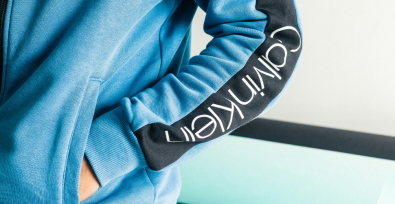Many fashion brands have been making efforts to purge their supply chains of cotton picked in the Uyghur region or any element that might have been made using Uyghur forced labor. In an attempt to fight back, the BBC reports China has launched an investigation into the U.S. company that owns Tommy Hilfiger and Calvin Klein claiming they are using “discriminatory measures” against them.
Beijing’s tit-for-tat tactics
PVH is the company that owns the two fashion brands Tommy Hilfiger and Calvin Klein. Both major U.S. fashion brands have a huge presence in China. The issue began in 2020 when a report was published by the Australian Strategic Policy Institute. The report alleges dozens of firms, Calvin Klein and Tommy Hilfiger among them, were benefiting from Uyghur forced labor. Uyghurs who had been detained in camps were being hired out and forced to work.
According to the report:
“Chinese factories outside Xinjiang are sourcing Uyghur workers under a revived, exploitative government-led labor transfer scheme. Some factories appear to be using Uyghur workers sent directly from ‘re-education camps’.”
Many Western governments, including the U.S., have recently passed legislation restricting or banning products from the Uyghur region. This is aims to stop goods made using Uyghur forced labor entering U.S. markets. And it seems now Beijing is hitting back, sending a message directly to multinational corporations. If you comply with consumer boycotts or government bans on products from this region, you may face retaliation. And the thinly veiled threat is that the investigation could lead to the brands being added to Beijing’s “unreliable entities” list. And that could hurt the brand’s bottom line. This comes on the heels of U.S. plans to add specific Chinese electric vehicle (EV) technology to its list of banned imports.
China aims to flip the script
A Chinese Ministry of Commerce official has denied there is any linkage between the newly announced probe and the recent plan by the U.S. And Cullen Hendrix, a Senior Fellow at the Peterson Institute of International Economics, said it isn’t clear exactly what prompted the investigation into PVH now. But whatever the reason, the investigation serves as a warning to multinationals. If you bow to western concerns, you may pay a price.
Hendrix said:
“China is, to a certain extent, flexing its muscle and reminding, not necessarily western governments, but western firms… that actions have consequences,”
Hendrix says Beijing is attempting to weaponize the same naming-and-shaming tactic used by human rights organizations. And U.S. firms have been put on Beijing’s unreliable entities list before. But to date, targeted firms were major defense contractors, such as Lockheed Martin and Raytheon, over their business in Taiwan. This turn to major brands represents a sea change in the fight to end Uyghur forced labor.
The proof is in the pudding
The fact that Beijing is targeting major fashion brands with threats means advocacy tactics to end Uyghur forced labor are working. But we need to ramp up the pressure on major labels to let them know the world is watching. Join with Freedom United and the Coalition to End Forced Labor in the Uyghur Region. We call on leading companies like PVH to ensure that they are not supporting or benefiting from Uyghur forced labor. Sign our petition and add your voice to make sure fashion brands know doing business with China in the Uyghur region is a losing proposition.







Freedom United is interested in hearing from our community and welcomes relevant, informed comments, advice, and insights that advance the conversation around our campaigns and advocacy. We value inclusivity and respect within our community. To be approved, your comments should be civil.
I’m glad to hear the Chinese government is getting nervous about all the bad publicity related to the Uyghurs’ slavery. There must be many other countries in Asia willing to welcome the work that is now being done in Chinese factories for a fraction more money, and the increase in price for the consumer would be compensated by the PR boost that fighting Uyghur slavery would mean for the companies involved. So what are they waiting for?